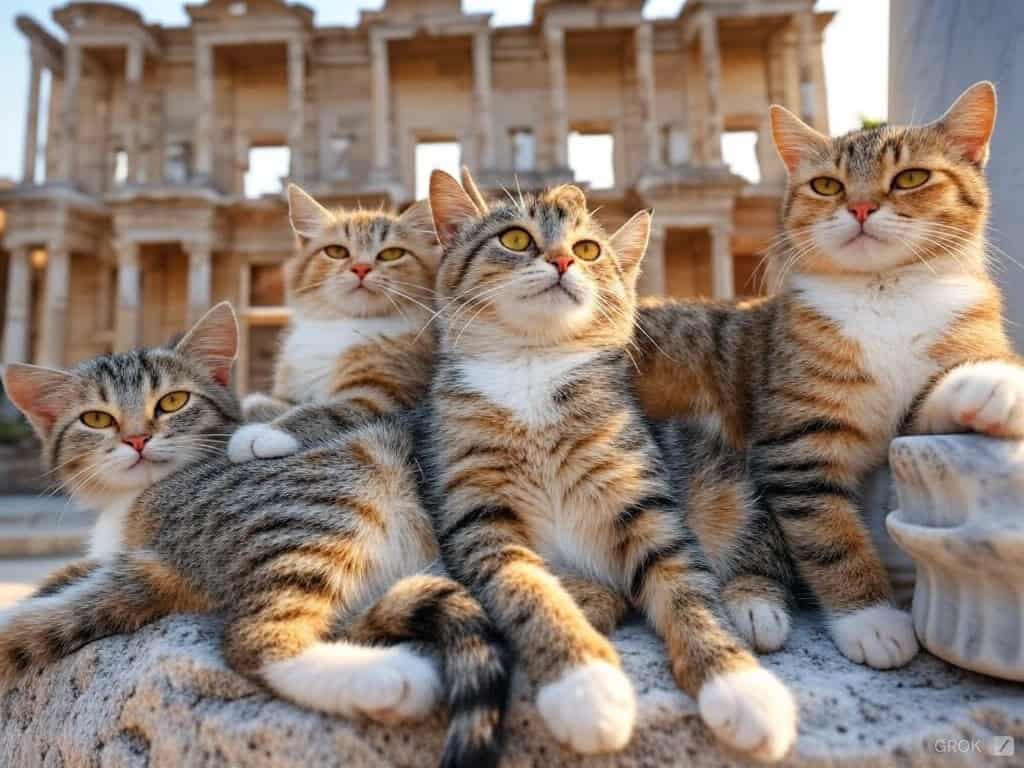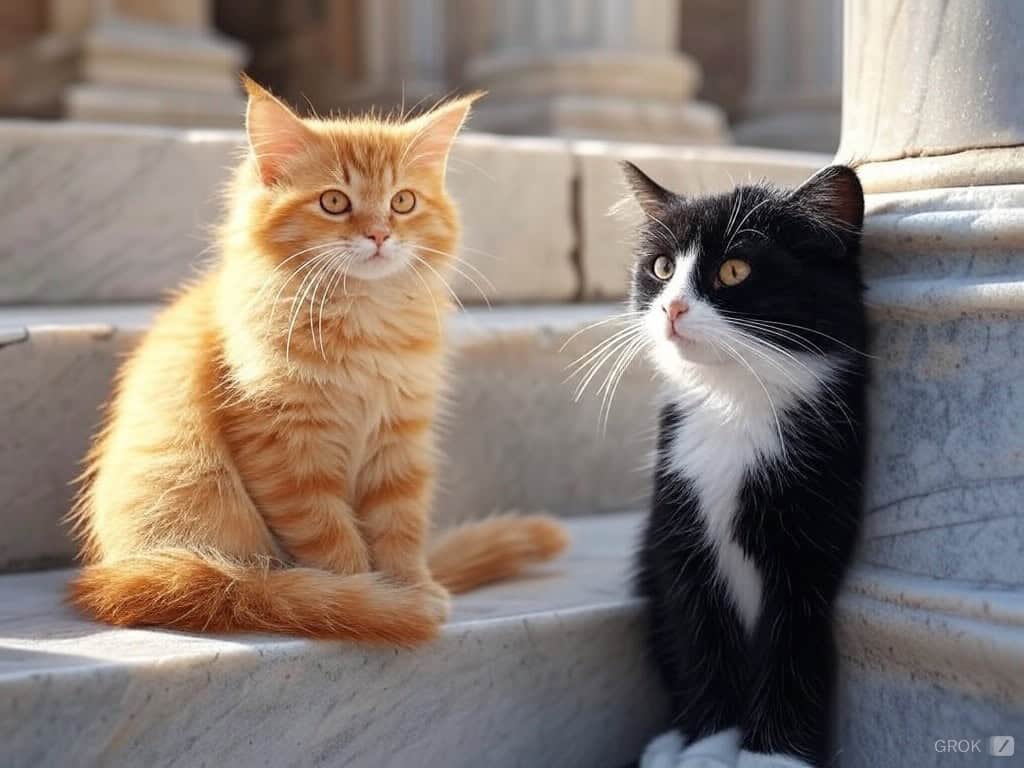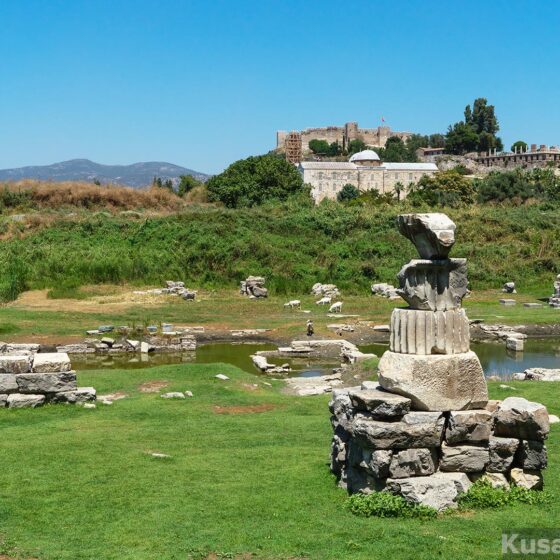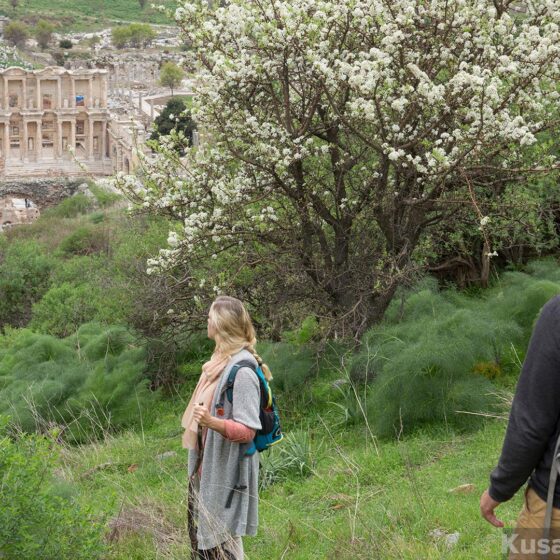Table of Contents Show
If you have visited Kusadasi, or actually anywhere in Turkey, you’ve probably noticed something hard to miss. Cats! They’re everywhere. From the streets to cafes, lounging on ancient ruins, or casually napping on shop displays, they’re as much a part of the scenery as the Aegean Sea.
But why? Why does Kusadasi, along with places like Selcuk and Ephesus, seem to have more cats than people? Let’s unravel this furry mystery with a bit of humour and a whole lot of love for these four-legged locals.
Cats in Kusadasi: Real VIPs
Kusadasi is a haven for cats, and they know it. As you wander through the town’s streets, you’ll spot them sunbathing on cobblestones, sitting like royalty on café chairs, and occasionally giving tourists a cheeky stare.
Locals adore them, treating them like family. You’ll often find bowls of food and water tucked into quiet corners or near shop entrances. These cats aren’t just strays—they’re part of the community. And with their confident strut and “you’re lucky I let you pet me” attitude, it’s hard not to smile when you see them.

Ephesus: Cats Among the Ruins
At Ephesus, one of the most famous archaeological sites in Turkey, the cats are just as iconic as the ruins. While visitors marvel at the Library of Celsus and the Great Theatre, the cats make themselves at home, lounging on marble steps or wandering the ancient streets.
These feline “guides” add a unique charm to the experience. They’ll walk beside you as if sharing their version of Ephesus’ history. You might even find one perched proudly on a column, looking like the true guardian of the site.
Selcuk’s Furry Residents
Not far from Ephesus lies Selcuk, a charming town where cats are equally celebrated. Here, they roam freely, enjoying the quiet streets and shaded courtyards. Many locals take it upon themselves to care for these cats, offering food, water, and plenty of affection.
It’s not uncommon to see a shopkeeper pausing mid-conversation to pet a cat that’s jumped onto the counter. And if you’re enjoying a meal at an outdoor restaurant, don’t be surprised if a curious feline decides to join you.
Why So Many Cats in Turkey?
The answer lies in Turkish culture. Cats have been a beloved part of life in Turkey for centuries, thanks to a mix of tradition and practicality. In Islamic culture, cats are considered clean and are often associated with kindness and hospitality. Stories even tell of the Prophet Muhammad’s fondness for cats, which has influenced how they’re treated today.
Beyond tradition, cats are valued for their pest-control skills. Over time, this respect for their usefulness has grown into genuine affection, and now cats are seen as companions rather than just working animals.

Observations About Turkey’s Cats
- They’re confident. Turkish cats are not shy. If you have food, they’ll let you know they’re interested.
- They’re photogenic. Whether perched on a ruin or sprawled in a café, these cats know how to look good.
- They’re part of the culture. Cats in Turkey aren’t just animals—they’re part of the identity of towns like Kusadasi and Selcuk.
What Makes Them Special?
The cats of Kusadasi, Selcuk, and Ephesus aren’t just a quirk—they’re a reminder of the warmth and hospitality that defines this region. They add character to every experience, whether you’re exploring ancient ruins, sipping Turkish tea, or wandering the streets.
So next time you’re in Kusadasi and a cat rubs against your leg or hops onto your lap, take a moment to appreciate them. They’re not just there—they’re part of what makes Turkey so wonderfully unique.
Last updated on December 24, 2024



